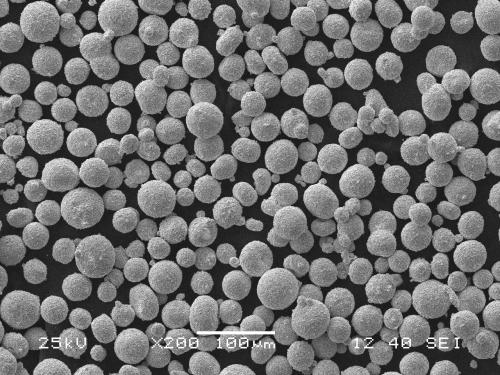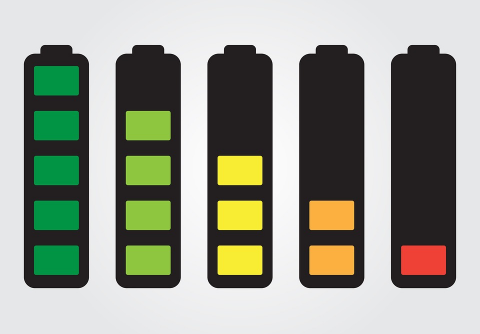Lithium Battery Warning- Labels, Symbols, Signs
Sep 02, 2019 Pageview:912
Introduction of Lithium Battery Warning
Since the introduction of the lithium ion battery by Sony in 1991 they knew that about their potential risks. A recall on the first lithium metallic battery was the reason the research shifted from lithium metallic batteries to lithium ions ones. The first metallic lithium battery was not so safe and that’s why it was not used for a long time.
The idea of coming up with a lithium battery came first in 1912 but it was until 1970 that the first non-rechargeable lithium battery was available in the market for purchase. There were many attempts of making a rechargeable battery in the nineteen eighties.
The models that they came up with had high energy density but they were very unstable when it came to charging which was a problem that needed to be solved. The temperature of the battery would rise so quickly to the melting point of the metal lithium and this could lead to a violent reaction.
The metallic lithium batteries were recalled after a pack in a cellular phone released hot gases that burned the face of a man. Because of the potential risks and instability of the lithium metallic battery, the research shifted from the metallic to use of ions.
The lithium ion battery did not have much energy density like the lithium metallic battery but the risk was lower. The lithium battery are way much safer provided all the precautions are met. As of today the lithium ion battery is the most successful battery and the safest battery available. Each year there are over two billion batteries that are produced so you can imagine how successful they are.
Safety Concern with Lithium Battery
Lithium battery are safe but as we already established it is until certain precautions are met. We will be discussing about the safety concerns in a moment. The lithium ion cells that has cobalt cathodes has twice the energy that the nickel based battery has and it hold four times the energy a lead acid battery hold.
The lithium ion batteries are easier to maintain compared to other types of batteries and they do not require scheduled cycling in order to prolong the life of the battery. Giving them an advantage not any other battery can claim to have. The battery has low discharge rate and it is way more environmentally friendly. Its disposal does cause much harm and it is no wonder it is preferred by most people.
A battery that has a long runtime is a wish of each and every manufacturer of a battery and this was made possible by packing more active materials into the cell and made the electrode as well as the separator a little bit thinner. This helped double the density of the battery that was first manufactured in 1991. But the higher density comes at a higher price.
The separator of such batteries is very thin and if there is any intrusion of something like dust, it may have serious consequences. That is why it is very important to be very careful with such battery. But with time the batteries the safety has increased.
Recall of lithium ion batteries
As we have established the lithium battery are very safe but they have to meet certain precautions. The batteries are used in phones, digital cameras and laptops. But as of anything there must be some problems too, and if there is it is normally taken care of very professionally. There was a time when six million batteries by dell were recalled just because one battery out of 200, 000 did not the precautions. This shows how serious the heat failure problem is taken by the manufacturers of the lithium ion batteries. It is because of such concern by the manufacturers that the consumers can buy the lithium ion batteries at ease.
Caution Class and Solutions of Lithium Battery
Now that we have seen that there were batteries that were recalled, I think it will be wise if we look at the reason why they were recalled. Sony the maker of the first lithium ion battery understands that there is a rare occasion that the very small metal particles might come in contact with other parts of the battery and this can lead to short circuit within the battery. The manufacturers are trying as much as possible to avoid this but because of the complex assembly of the battery it makes it nearly impossible to achieve perfection.
Just a mild short circuit will lead to increased self-discharge. Little heat is normally generated because the discharging energy is usually very low. However, if enough the microscopic metal particles find a way of converging in a single area, it will lead to a major electrical short that is capable of developing a sizable current that will flow between the positive and the negative plates. This will lead to a thermal runaway or what is referred to as venting flame.
The lithium batteries that have cobalt cathodes which are the same as the batteries that were recalled should not rise above 130 degrees Celsius. During the thermal runaway the high heat that is caused by the failing cell can propagate and affect the next cell as well. And in some cases it can lead to a series of failing cells and within a few seconds the cell will be destroyed. It is because of this reason the lithium ion batteries are fitted with dividers to avoid the failing cell from spreading to the other cells.
The lithium ion batteries uses two types of lithium ion chemistries which can be either cobalt or manganese. Cobalt is the one that have been used for quite some time to provide stability to the laptop, digital camera and phones batteries. Manganese is newer and it offers more stability as it can sustain a temperature of up to 250 degrees Celsius before it becomes unstable.
- Prev Article: Lithium Battery Risk Assessment-Most Important Parts
- Next Article: Lithium Battery Waste- What waste does it belong to?
Leave Message
Hottest Categories
-
Hottest Industry News
-
Latest Industry News











